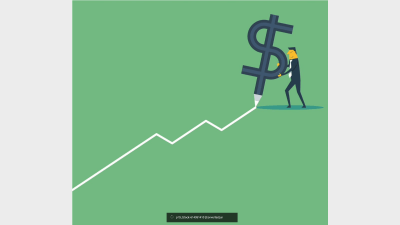Why is the market rising and will it keep rising?



There are a range of different factors contributing to the direction of the market and for the most part if reflects confidence in the business and economy, according to Dale Gillham, chief analyst of Wealth Within.
If confidence is high or increasing the stock market will rise, which creates momentum, how fast or slow the momentum is will be determined by economic factors.
The most recent of those was the RBA cut, which Gillam said: “We know that as the cash rate drops so do returns on cash investments. Therefore, with the cash rate being below inflation, it makes sense that investors would exit cash investments in favour of stocks to achieve a higher return together with the opportunity to also receive capital gains as the assets rise.”
The influx into shares saw the market continue to rise, particularly banks and other top 20 stocks, with last week’s strong move on the All Ordinaries Index being eclipsed this week gaining another two per cent.
The financial sector went up over two percent, while Information Technology and Utilities both saw increases over four per cent.
CBA and Macquarie lead the banks at around four percent, while Coles rose over six per cent.
Of the top 100 stocks, Northern Star was around 11 per cent and Magellan around 10 per cent.
Caltex was the worst performer of the week, down 11 per cent, and nearly 50 per cent since January 2015.
The All Ordinaries Index had risen over 22 per cent since the December 2018 low and Gillham said he expects it to make an all-time high recovery, potentially before the end of the month.
Gillham’s overall expectation of the direction of the market was that it would remain bullish in the medium term with his target being 6900 to 7400 points. In the short term, the ASX 200 would rise over the next two weeks before falling away for one or two weeks in mid-to-late July.
Recommended for you
The merger with L1 Capital will “inject new life” into Platinum, Morningstar believes, but is unlikely to boost Platinum’s declining funds under management.
More than half of the top 20 most popular shares bought by advised investors during the first half of 2025 were ETFs, according to AUSIEX data.
At least two-thirds of ETF flows are understood to be driven by intermediaries, according to Global X, as net flows into Australian ETFs spike 97 per cent in the first half of 2025.
Inflows for the first half of 2025 for GQG Partners stand at US$8 billion, but the firm has flagged fund underperformance could be a headwind for future flows.













